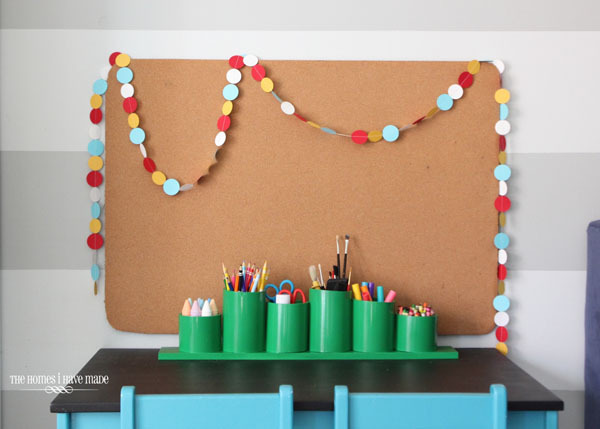We spend, on average, a third of our lives sleeping. It restores our minds, strengthens our immune systems and let’s face it: It’s just plain enjoyable.

Paste this Image on Your Site!
Simply copy and paste the code below and you can share this infographic on your site:
[fdembed]
Still, a lot of us aren’t getting the sleep we deserve, which can have a huge effect on how we experience our waking hours. But there are a few things we can do about it, and optimizing your bedroom for sleeping is one of them. Here are some simple tips for turning your bedroom into the sleep sanctuary it should be.
How Much Sleep Do You Need?
– Infants: 16 hours
– Ages 3-12: 10 hours
– Ages 13-18: 10 hours
– Ages 19-55: 8 hours
– Ages 55+: 6 hours
Pick a Color, Any Color
Your property manager may allow you to paint your walls and may even ask for your preference if the apartment is going to be repainted before you move in. Choose a tone you personally find soothing. If you prefer warm tones, skew towards more muted ones.
When possible, select a matte finish to avoid amplifying light by reflection.
It’s Worth Spending on Your Sleep
Replace your mattress every five to seven years to ensure you get the best support.
Buy the most expensive mattress you can reasonably afford — it is worth it.
Invest in sheets with at least a 300-thread count. Long-fiber or “Supima” cotton is best.
Keep It Clean
Fight the urge to bring your waking life into the bedroom. This includes phones and computers!
Keep work or chores like laundry out; they’ll serve as distracting reminders.
Keep It Cool
The ideal temperature for sleep is around 65 degrees.
Go Dark
Ideally, your bedroom should be as dark as possible without you bumping into things.
Invest in a good set of window shades or even blackout curtains — just be sure these are compliant with any window covering restrictions set by your property manager.
Can’t afford to? A sleep mask is an inexpensive solution.
Dim Early, Dim Often
Your body needs true darkness in order to get the best sleep.
– 4 in 10 people will check their phones during the night if it goes off. And 81% of users will keep it on throughout the evening.
– The average person now spends 8 hours, 41 minutes of their day on electronic devices, which is more than they sleep.
– Almost 80% of people who seek medical attention for exhaustion or difficulty sleeping keep phones in bed with them.
– Trade in your digital alarm clock for an analog one with glow-in-the-dark hands.
– If you absolutely have to have it in your bedroom, keep your phone face down so your sleep isn’t disturbed by a glowing screen.
– Avoid viewing any screens an hour before sleeping — this includes TVs, tablets, etc.
– Though it’s only the size of a pea, the pineal gland is what releases melatonin (a sleep-inducing hormone) about 60 to 90 minutes before you go to sleep.
– Install dimmers so you can slowly bring down light levels as you prepare for sleep. (Get the OK from your property manager first.)
– Energy-efficient bulbs emit a harsh, artificial light. Try old-school Edison bulbs in bedside lamps for a warm, soothing and natural glow.
With these easy tips, you can make your bedroom into the comforting, relaxing space you deserve. Now go get some ZZZs.
Sources:
http://sleepfoundation.org/sleep-news/six-tips-design-the-ideal-bedroom-sleep
http://bettersleep.org
http://www.dailymail.co.uk/health/article-2989952/How-technology-taking-lives-spend-time-phones-laptops-SLEEPING.html
How to Optimize Your Bedroom for Maximum Sleep
Apartment Living

Recommended Articles
Apartment Living
9 Min. Read
Best Tips for Renting with Roommates
Renting with roommates has its ups and downs. Yes, it saves you money on rent and living expenses. And yes, sometimes it means having a built-in best friend right at home. However, sharing a…
Apartment Living
7 Min. Read
15 Tips for Renting an Apartment with a Pet
Renting with a roommate can be difficult -- especially when they’re furry, four-legged, and attached to your hip. Yes, we’re talking about pets, both a man’s best friend and a renter’s biggest challenge. Whether…
Apartment Living
6 Min. Read
How to Create a Magical Color Palette for a Jolly Holiday Season
There’s no wrong way to decorate for the holidays. Perhaps you’re a traditionalist, favoring greens and reds. Or maybe you like to be a little different, opting for a black tree adorned in purple…
Apartment Living
2 Min. Read
20 Sweet and Sensible Decorating Ideas
You don’t have to be an interior decorator to make your apartment look fashionable and inviting. Just a few easy updates will give your apartment a fresh, new look – and it won’t cost…
